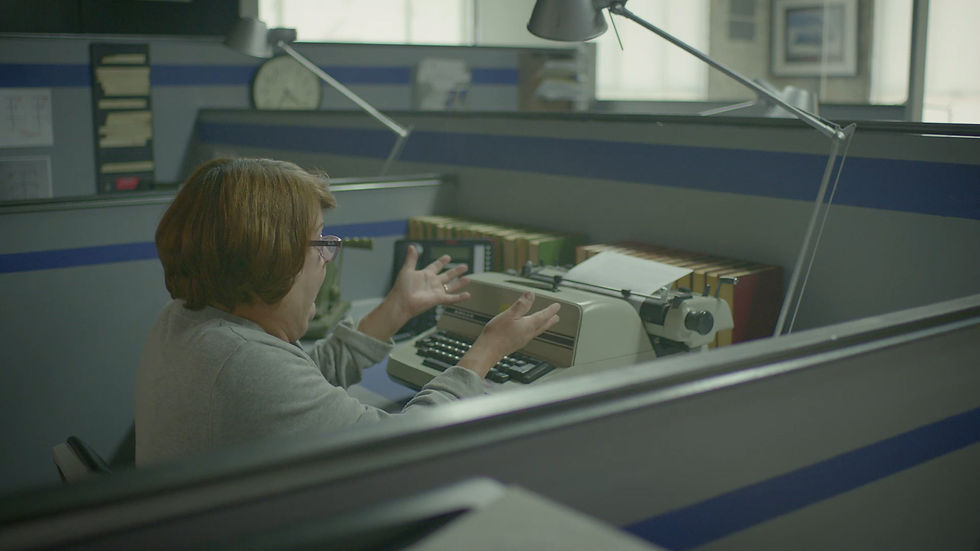Employees are waiting in hell - "What do you do there?" Review
- Tokyo Cine Mag
- Jul 19, 2023
- 3 min read
Updated: Jul 25, 2023

The film opens in a quiet office environment, one of which we all have sometimes wondered what exactly they do in and what is the function of all this paperwork and entering numbers on the computer? The simple question that someone on the other end of the line asks one of the office employees is precisely this one: “What do you do there?”- a simple question that must have an easy answer, a one-sentence one which explains what all these people do in that closed space and what services they provide. The person who is asked this question has no answer and, as a result, he asks his colleague what they do there. The space of the work and what it intends to unfold is still not clear to us and we suppose that this new employee is faced with a question for which his experienced colleague surely has an answer. However, his colleague does not know much more than that he thinks their purpose is some kind of finance thing. But another colleague jumps in and says that she guesses they do loans and mortgages. But another person who works in the same office is fairly certain that their job is to sell insurance. The debate over what exactly these people do in this office rages and everyone gives an opinion so they have to read the corporate mission statement on the wall. That simple initial question has changed the situation to such an extent that now we have been thrown from a normal and clichéd environment to a surrealistic one. What do these people really do here? Isn't it possible that these people, like the extras in Kafka's stories, have been captured by a situation which they are oblivious of the reason for, and they have to do their daily tasks like machinery without knowing the field and purpose of their work?

The surrealistic atmosphere of the film engages us with the question of whether people inquire the sense of their work of themselves? It seems when we ask simple questions about fundamental assumptions and self-evident truths, we challenge their nature and sound critical of their uncommon existence, which seems normal due to repetition. The central feature of the work of the director of WHAT DO WE DO (Roderick Fenske) lies in the fact that questioning a very simple situation and posing an easy question make us doubt many of the common things in everyday life and wonder what we really do and what is going to happen next?

The very complicated and virtually meaningless sentence reading on the corporate mission statement board remains the main reason for the confusion of the employees of this office. They do almost everything and do nothing, for the nature of such offices seems to be having customers at any cost. The camera is fixed throughout the film and the film has a static and practically simple structure. Sarcastic remarks (like talking about receiving e-mail by an employee when there is not a computer but a typewriter in front of her), the argument between the employees, as well as all the swings created by that simple question are formed in the heart of this simple and static structure. All our attention is supposed to be focused on the absurdity of this situation. The filmmaker has attempted to convey the absurdity of the situation through the arrangement of the rooms as well. From a modern laptop to antique devices can be seen in an office that can belong to any era. They practically live outside of time. Attention to details, careful work with the actors, the right rhythm and the effective timing of the dialogues all have brought us a symbolic and spectacular film that can remain in the corner of our mind as a viewer for a long time.

Films that can do this to the audience, that is, raise their awareness of a simple issue that has been forgotten due to normalization, take a serious step that can endanger the entire film in case of a very elementary mistake. However, WHAT DO WE DO has done a great job of shaping the metaphor it intends, builds its metaphor, and ends by distancing itself from that space. As a short film, it has all the necessary components. It recounts its story in a short period of time and we as viewers can also tell it to another in a short period of time, it brings its story to a climax and concludes. At the same time, it maintains its humor and takes the bitterness of the story seriously.

Yorumlar